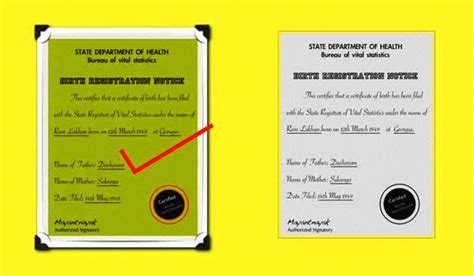5 Easy Steps to Obtain Your Gov.pr Birth Certificate

Introduction
Obtaining a birth certificate from the Puerto Rico Vital Records Office (Gov.pr) may seem daunting, but with the right guidance, the process is straightforward. Whether you’re requesting a certificate for yourself, a family member, or legal purposes, this step-by-step guide ensures you navigate the system efficiently. Below, we break down the process into five easy-to-follow steps, backed by expert insights and practical tips.
Step 1: Determine Your Eligibility

Before initiating your request, confirm your eligibility to obtain a birth certificate. According to Puerto Rico’s Vital Records Office, only the following individuals can request a birth certificate:
- The person named on the certificate (if 18 or older)
- Parents or legal guardians
- Legal representatives with proper authorization
Expert Tip: If you’re requesting a certificate for someone else, ensure you have notarized authorization or legal documentation to avoid delays.
Step 2: Gather Required Documents

To process your request, you’ll need the following documents:
- Valid Identification: A government-issued ID, such as a driver’s license or passport.
- Proof of Relationship: If requesting for someone else, provide documents like a marriage certificate or guardianship papers.
- Application Form: Download the birth certificate request form from the official Gov.pr website.
Key Takeaway: Incomplete applications are a common cause of delays. Double-check your documents before submission.
Step 3: Choose Your Request Method
The Puerto Rico Vital Records Office offers three methods to request a birth certificate:
| Method | Processing Time | Cost |
|---|---|---|
| Online | 5-7 business days | $15 |
| 4-6 weeks | $15 + postage | |
| In-Person | Same day (if eligible) | $15 |

Pros of Online Requests: Faster processing and convenient tracking.
Cons of Mail Requests: Longer wait times and risk of document loss.
Step 4: Submit Your Request
Follow these instructions based on your chosen method:
- Online: Visit the Gov.pr online portal, complete the form, and pay the fee using a credit card.
- Mail: Send the completed form, documents, and payment (check or money order) to the address provided on the Gov.pr website.
- In-Person: Visit the Vital Records Office in San Juan with your documents and payment. Note: Appointments may be required.
“Submitting your request accurately the first time saves weeks of unnecessary waiting.” – Maria Rodriguez, Legal Advisor
Step 5: Track and Receive Your Certificate

Once your request is submitted, monitor its progress using the tracking tool available on the Gov.pr website. For online and in-person requests, certificates are typically delivered within the specified timeframe. Mail requests may take longer due to processing and postal delays.
Key Takeaway: Keep a copy of your receipt or confirmation number for future reference.
Can I request a birth certificate for someone who passed away?
+Yes, immediate family members or legal representatives can request a deceased person’s birth certificate by providing proof of relationship and a death certificate.
How long does it take to receive a birth certificate by mail?
+Mail requests typically take 4-6 weeks, including processing and shipping time.
Can I expedite my birth certificate request?
+Expedited services are available for online requests for an additional fee of $20, reducing processing time to 2-3 business days.
What if there’s an error on the birth certificate?
+Contact the Vital Records Office immediately with proof of the correct information. Amendments may require additional documentation and fees.
Conclusion
Obtaining a birth certificate from Gov.pr doesn’t have to be complicated. By following these five steps—determining eligibility, gathering documents, choosing a request method, submitting your application, and tracking its progress—you can secure your certificate efficiently. Remember, accuracy and patience are key to a smooth process. For further assistance, visit the official Gov.pr website or contact their support team.
Final Expert Insight: Always keep certified copies of vital records in a safe place. They are essential for legal, educational, and identification purposes.